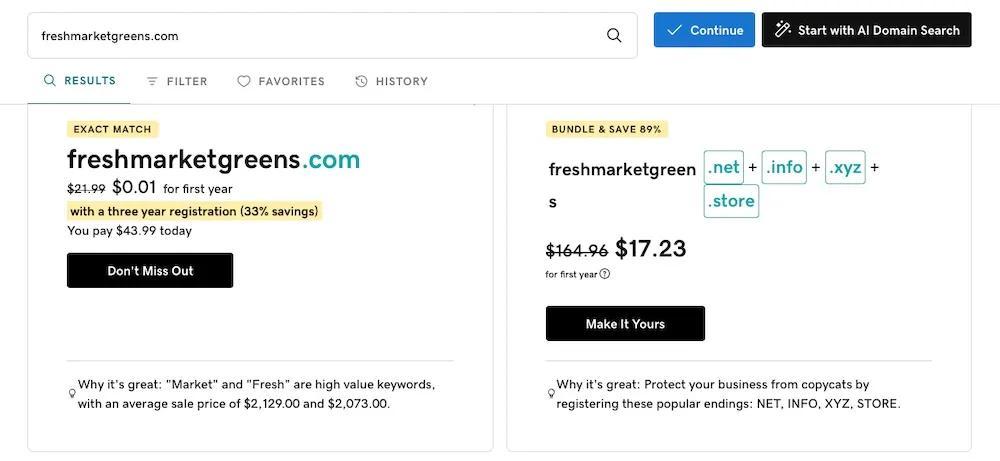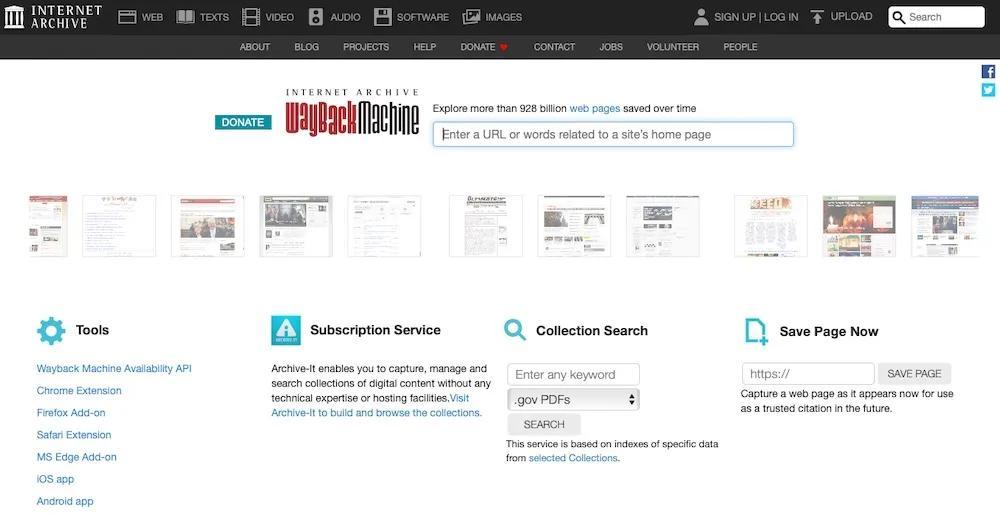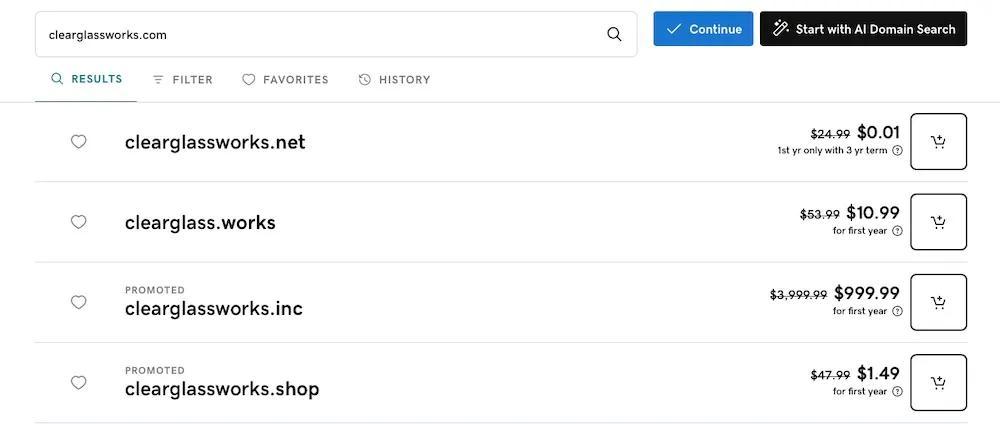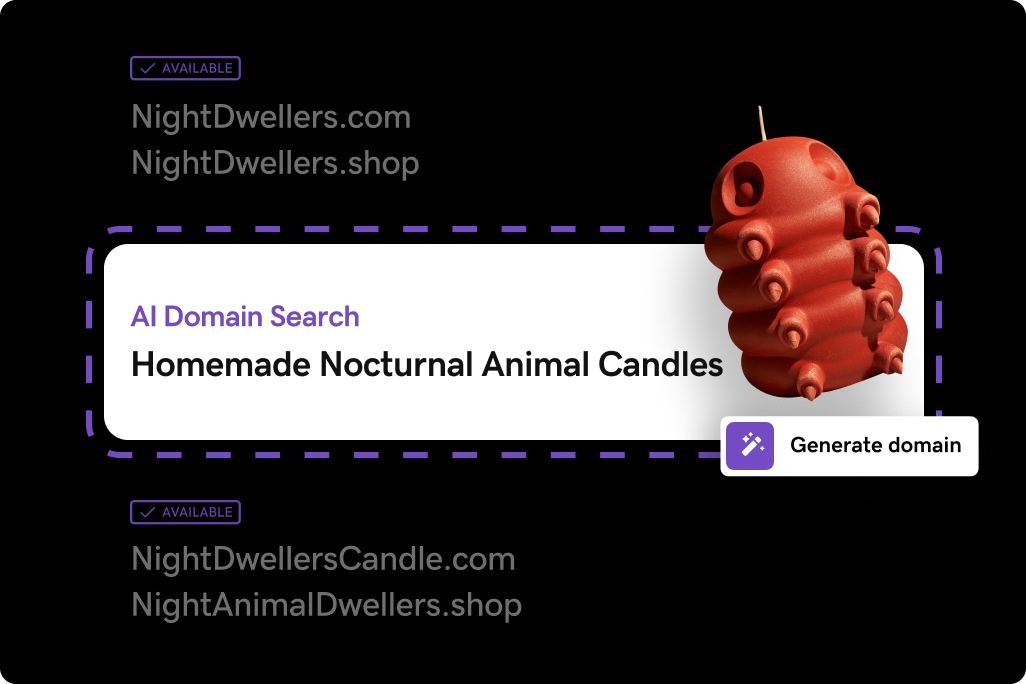Getting found online is a big deal. It’s how customers discover your business, how you compete in search results, and how your brand grows.
Most people think of SEO in terms of content and keywords. And they’re not wrong about that. Your domain name also plays a key role in how visible and trustworthy your site appears to search engines and visitors.
A domain name is more than just a URL. A well-optimized domain gives search engines clues about your site’s purpose and helps visitors understand what to expect before they even click.
In this article, we’ll look at what SEO domain names are, why they matter, and how to choose one that supports your visibility goals. You’ll also learn practical tips to avoid common mistakes and make sure your domain is doing its part to boost your search performance.
What are SEO domain names?
SEO domain names are website addresses intentionally selected to support search engine optimization. They’re designed to make it easier for both users and search engines to understand what your site is about at a glance.
But what is it specifically that makes a domain SEO-friendly? Here are a few qualities to make note of:
- Keyword relevance: Includes terms that reflect your business, services, or niche.
- Simple and memorable: It’s easy to type, say, and recall.
- Clean structure: Avoids hyphens, numbers, and unnecessary complexity.
- Reputable extension: Uses a trusted top-level domain (TLD) like .com, .org, or a relevant country-code or niche-specific extension.
Choosing a domain name with SEO in mind sets a solid base for your website’s overall visibility and brand recognition.
Understanding the role and importance of domain names in SEO
Your domain name can influence how people perceive your site. That matters for both branding and search performance. While search engines look at many factors when ranking content, your domain plays a supporting role, especially in terms of clarity and trust.
According to Google, having keywords in your domain name or URL path offers little to no ranking advantage on its own. The benefit comes more from user understanding than search engine signals.
Keywords in your domain might show up in breadcrumbs or search snippets, which can improve click-through rates. But they won’t move the needle much for rankings.
The same goes for domain extensions. Google doesn’t favor .com, .org, or any other top-level domain (TLD) by default. The only real exception is country-specific TLDs, like .fr or .ca, which can help you rank better in localized search results.
If you’re targeting users in a specific region, a country code domain may support that effort. Otherwise, the choice of TLD has little impact on SEO.
A clear, relevant name does build trust, support branding, and help people feel confident clicking through, however.
Best practices when optimizing domains for SEO
Your domain name does more than label your website. It also sets the tone for how search engines and visitors interact with your brand. It can influence what people expect from your site and whether they feel confident clicking on it in search results.
And while it might feel like a quick decision, the domain you choose can have long-term impact on your SEO, credibility, and overall online visibility.
Thankfully, following a few simple best practices helps you create a domain that supports search performance and user experience from day one.
Use keywords that reflect your content and user intent
Adding relevant keywords to your domain name can provide helpful context to both search engines and potential visitors.
For example, a domain like bostonplumbingservices.com gives Google a clear signal about your location and service type. But keyword stuffing won’t help. Instead, use one or two well-placed words that match what people are actually searching for, while keeping the domain name clean and readable.
Choose a domain extension that supports trust and relevance
While .com remains the gold standard for brand recognition and credibility, search engines treat most top-level domains (TLDs) the same in terms of ranking. However, your TLD still influences user perception. If you're targeting a local audience, country-specific TLDs like .co.uk, .ca, or .de can help establish local relevance. Meanwhile, niche extensions like .store, .design, .ai or .tech can highlight your industry. Just be mindful that some of these may appear less trustworthy to cautious users.
Localize your domain to improve geotargeted search rankings
If your business serves a specific geographic area, adding that location to your domain name can help you show up more often in local search results. A domain like austintexasroofers.com tells people and search engines exactly where you operate. This especially helps if you’re in a competitive industry where local visibility makes or breaks conversions.
Make domains easy to spell, pronounce, and share
Even though domain spelling isn’t a direct SEO factor, it heavily affects usability and shareability. And those are two things that impact traffic and repeat visits. If people mishear your domain or struggle to type it from memory, they’re less likely to reach your site or link back to you. Aim for something intuitive that’s easy to share verbally, over social media, or in printed materials.
Combine memorability with brand clarity
Cleverness isn’t enough to create a great domain name. It should also communicate what your business does without causing confusion. Descriptive names that also reflect your brand’s tone and personality can make you more memorable in search results.

Domains like freshmarketgreens.com or boldlegalgroup.com do this well. When people recognize what you do and remember who you are, they’re more likely to click through and return again later.
Research the domain’s history before purchasing
Just because a domain is available doesn’t mean it’s fresh. Previous owners may have used it for spammy content, low-quality backlinks, or unrelated industries. The effects of these past decisions can linger and hurt your SEO performance.
To take a look at what used to be housed on your potential domain, use tools like the Wayback Machine to view past content or run a backlink audit through Ahrefs or SEMrush to check for toxic links.

A clean domain history is much easier to build on than one that’s been penalized or abandoned.
Study your competitors’ domains for patterns and positioning
Looking at which domains are ranking well in your space can uncover useful patterns.
- Are they using exact-match keywords, branding-only domains, or a combination of both?
- Do they lean toward .com domains, industry-specific extensions, or geographic modifiers?
Research on competitors won’t tell you exactly what to do, but it can help you spot trends and gaps so you can position yourself more effectively.
Plan for long-term growth, not just short-term relevance
Your domain name should grow with your business. That means avoiding overly narrow or trend-dependent language that could box you in later.
For example, a name like quickketofoods.com might work now, but could limit expansion into other dietary categories later. Choose a name that still makes sense as you diversify your services, enter new markets, or rebrand.
Register common typos, variations, and related domains
Protecting your domain centers around brand security, of course. But it’s also a smart way to capture lost traffic. If your main domain is clearglassworks.com, it’s worth securing clearglasswork.com, clearglassworks.net, or common misspellings.
When registering a domain name with Google, you’ll often see related suggestions that might be worth grabbing up.

Redirect them all to your primary site to make sure people who type it wrong or who remember it imperfectly still end up in the right place.
Get creative with domain structure — strategically
Unconventional domain formats like del.icio.us or calm.ly can be memorable and brand-forward if done right. But they also carry risks. They may be harder to pronounce, spell, or understand at a glance, especially if people aren’t familiar with this approach to domain structure.
If you go this route, make sure the name still falls in line with current SEO principles: clear, keyword-relevant, and readable.
Avoid hyphens, numbers, and other SEO-unfriendly clutter
While technically allowed, hyphens and numbers tend to hurt more than they help. They make domains harder to communicate verbally, increase the likelihood of user error, and can even look spammy in search results. Unless you have a compelling reason (like a brand name that includes a number), it’s best to keep your domain as clean and simple as possible.
Common mistakes to avoid when choosing an SEO domain name
Just like there are best practices for choosing an SEO-friendly domain, there are also common missteps that can hurt your visibility, credibility, or both. Knowing what to avoid can save you from headaches later, whether it’s struggling to rank in search, losing traffic due to confusion, or even facing legal trouble.
Here are some of the most important SEO-related mistakes to steer clear of when selecting your domain name:
Keyword stuffing
While using one relevant keyword can support SEO, cramming multiple keywords into your domain makes it look spammy to search engines and real people. Domains like bestcheapusedcarslosangeles.com are clunky, hard to read, and may raise red flags with Google.
Choosing overly long or complex names
Long domain names are harder to remember, easier to mistype, and less clickable in search results. If someone has to reread your domain to understand it, you’ve already lost them.
Using hyphens
From an SEO perspective, hyphens can make your site appear less trustworthy and more spam-like. While Google doesn’t penalize hyphens outright, multiple hyphens in a domain often signal low-quality or deceptive websites.
Inserting numbers or special characters
Including numbers or symbols in your domain can confuse users, especially if they’re unsure whether a number should be spelled out or typed numerically. Special characters (like underscores or plus signs) aren’t even valid in most domain names, and using nonstandard numerals can affect click-through rates and shareability.
Skipping trademark research
It’s essential to verify that your domain doesn’t infringe on an existing trademark. Beyond the potential legal issues, you could also be forced to give up the domain later, losing whatever SEO momentum you’ve built.
Using domain extensions with poor reputations
Some TLDs like .xyz, .top, and .shop have been heavily used by spammers and scam sites. While Google treats all TLDs equally in theory, user trust can take a hit. If your audience doesn’t recognize or trust your extension, they’re less likely to click.
Leaning into short-term trends
Domains that rely on fleeting slang or internet culture (like fypgear.com or crypto-vibes.xyz) might be attention-grabbing now, but they can quickly feel dated. A trendy domain today may not age well—and rebranding later can disrupt your SEO performance.
Failing to consider brand consistency
If your domain name doesn’t align with your business name or social handles, you risk confusing users and diluting your online presence. Consistency across channels reinforces trust and improves discoverability.
Choosing something too generic
A domain like bestservicesonline.com is vague and forgettable. Generic names are less likely to earn backlinks, brand recognition, or organic mentions, all of which support SEO over time.
Avoiding these pitfalls from the start gives your domain a cleaner slate, a stronger brand presence, and a better shot at earning visibility in search.
Do domain extensions affect SEO?
Domain extensions, also known as top-level domains (TLDs), can influence SEO, especially when it comes to user trust and international targeting. While Google has confirmed that most TLDs (like .com, .net, or .org) are treated equally in terms of ranking, how your audience perceives those extensions still matters.
For international SEO, country-code TLDs (ccTLDs) like .co.uk, .de, or .fr signal that your content is meant for users in a specific country. This can help improve rankings in localized search results. On the flip side, using a ccTLD without targeting that country can confuse search engines or limit your reach.
There are also newer or less traditional extensions like .xyz or .online, which may not hurt your rankings directly but could reduce user trust if they’ve been associated with spammy websites in the past.
What is the best domain extension for SEO?
The best domain extension for SEO depends on your target audience and brand goals. While search engines don’t give ranking preference based on the extension alone, certain TLDs come with built-in advantages.
Best domain extension for SEO
.com is still the most trusted and recognizable option worldwide. It’s often people’s first guess when typing a URL and is widely viewed as professional and credible, which can support higher click-through rates.
Country-code TLDs like .co.uk, .ca, or .de are great for businesses targeting specific countries. These signal geographic relevance to visitors and search engines and help boost local SEO performance.
.org and .net are also well-established and can work well for nonprofits or companies.
Newer extensions like .store, .tech, .io, .ai, or .agency can be effective if they suit your niche, but they may carry less trust or familiarity. So, use them strategically.
In general, choose a domain extension that matches your audience’s expectations and your brand identity. Trust, clarity, and relevance go further than novelty in SEO.
How to change a domain name without losing SEO
Changing your domain name can affect your SEO if not handled carefully, but it doesn't have to. To preserve your rankings and traffic, you’ll need to follow a structured transition plan.
This includes setting up proper 301 redirects, updating internal links, resubmitting your sitemap, and notifying Google Search Console of the change. It’s also important to monitor your site’s performance after the switch.
FAQs about SEO domain names
Here are quick answers to some of the most common questions about SEO domain names so you can make smarter domain decisions:
What is a keyword-rich domain name?
A keyword-rich domain name includes relevant search terms that describe your business, service, or niche, like laplumbercompany.com. It helps search engines and potential customers quickly understand your site’s focus, which supports better visibility in search results.
Does buying extra domain names help SEO?
Buying extra domain names does not directly improve SEO. However, securing variations or misspellings of your main domain can help protect your brand and capture lost traffic. Always redirect extra domains to your primary site using 301 redirects.
Does Google prioritize .com domains?
No, Google does not prioritize .com domains in search rankings. However, .com extensions are the most recognized and trusted by people, which can lead to higher click-through rates.
Is .com, .net or .org better for SEO?
From an SEO perspective, .com, .net, and .org are treated equally by Google. That said, .com is generally preferred due to its familiarity and credibility, which can improve trust and engagement.
When to use subdomain vs subdirectory for SEO?
Use a subdirectory like example.com/blog when the content is closely related to your main site. Use a subdomain like blog.example.com for content that’s distinct or managed separately. Subdirectories typically consolidate SEO value better than subdomains.
Disclaimer: Some brands and companies are fictitious and used for demonstrative purposes only. Any similarity or resemblance to existing companies or brands is purely coincidental.






